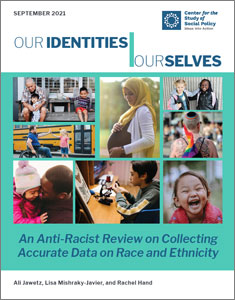This resource explores how teaming meetings build and strengthen young people’s Protective and Promotive Factors (PPFs) and includes considerations for how to elevate young people’s voice and engagement in teaming meetings.
(3 pp)
OR
OR
This resource explores how teaming meetings build and strengthen young people’s Protective and Promotive Factors (PPFs) and includes considerations for how to elevate young people’s voice and engagement in teaming meetings.
(3 pp)
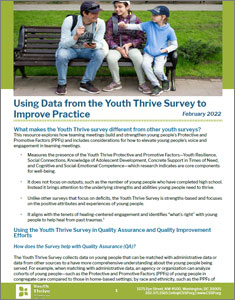
We owe young people who age out of care the structure and supports that they need to thrive. To fulfill this obligation and to remove barriers to thriving, we need new investments to support these young people. This policy agenda highlights key opportunities to advance the health and well-being of young people who are involved with child welfare systems.
(8 pp)
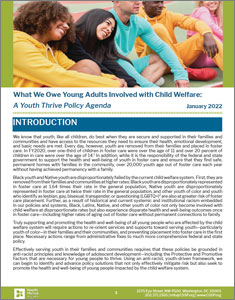
This report provides a current summary of efforts made by New Mexico’s Children, Youth, and Families Department (CYFD) and Human Services Department (HSD) as they work to fulfill the commitments outlined in the Kevin S., et al. v. Blalock and Scrase Final Settlement Agreement.
(120 pp)
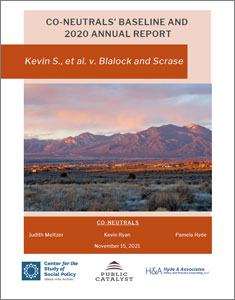
The Youth Thrive Coaching Tool is one of many resources for implementing the Youth Thrive Initiative developed by the Center for the Study of Social Policy. The purpose of this Coaching Tool is to give supervisors key questions, guidance, and ideas about how to help workers assess and support Protective and Promotive Factors with youth.
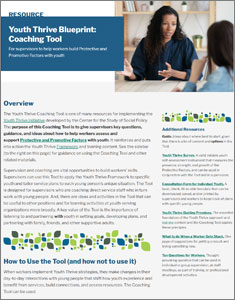
This is the ninth report on the progress of the South Carolina Department of Social Services in meeting the requirements of the Final Settlement Agreement.
(162 pp)
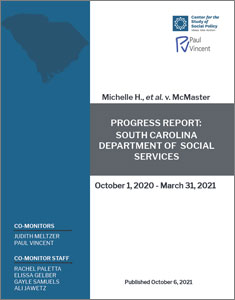
This guide offers guiding principles and best practices for applying a anti-racist and equity focused lens to data collection, analysis, usage and reporting within child welfare systems.
(5 pp)
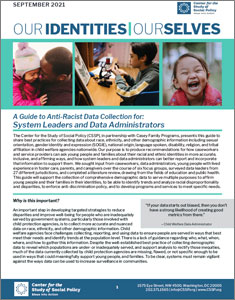
This guide serves as a tool for young people and families in understanding their rights when asked questions about their identities. It also includes responses to common questions asked by young people and families related to data collection and usage.
(2 pp)
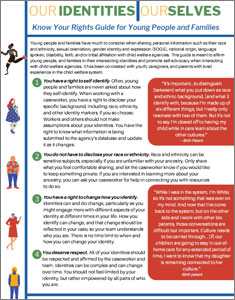
This one-page, printable poster provide at-a-glance tips for collecting data, talking with youth and families, and starting conversations, highlighting the most salient information in A Guide to Anti-Racist Data Collection for Case Workers. Note: printable size is 11" x 17".
(1 pp)
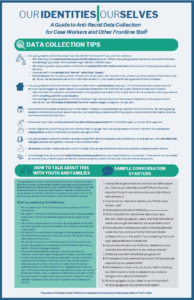
This guide serves as a tool for case workers and frontline staff in collecting demographic data from young people and families. It includes best practices for data collection, a sample script and a list of questions to engage young people and families in discussions about their identities.
(5 pp)
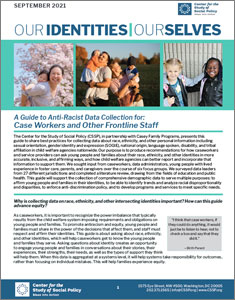
This literature review provides a synthesis of the research on best practices for collecting, analyzing and using comprehensive demographic data within child welfare systems.
(29 pp)
